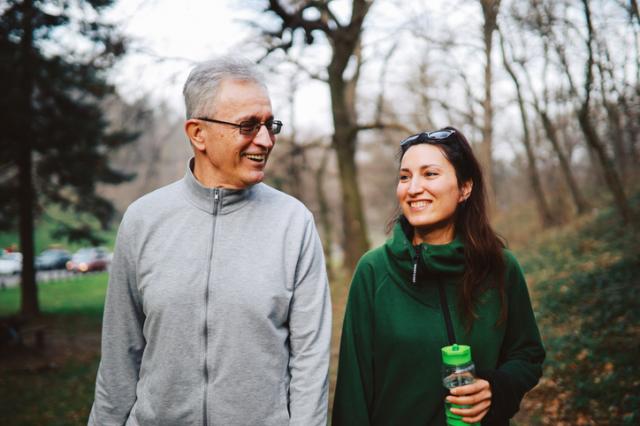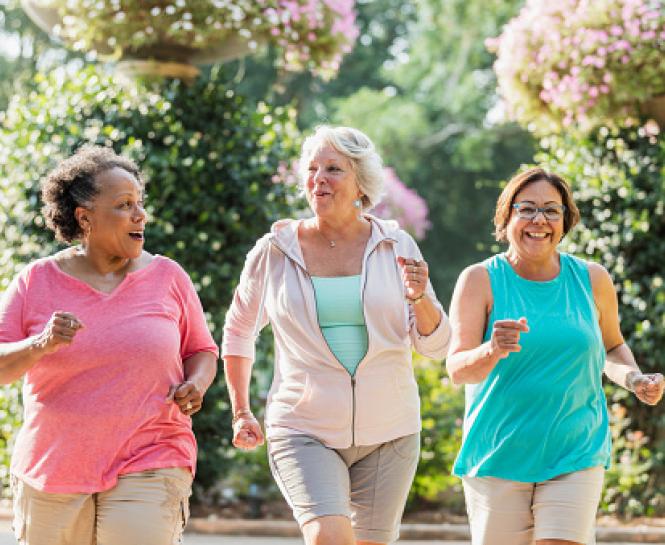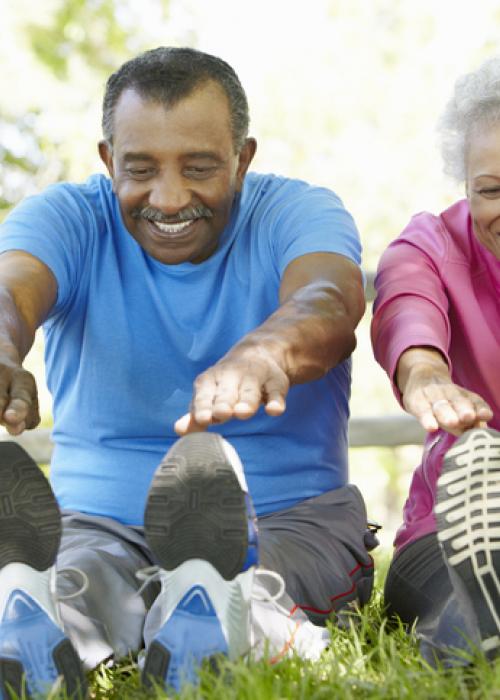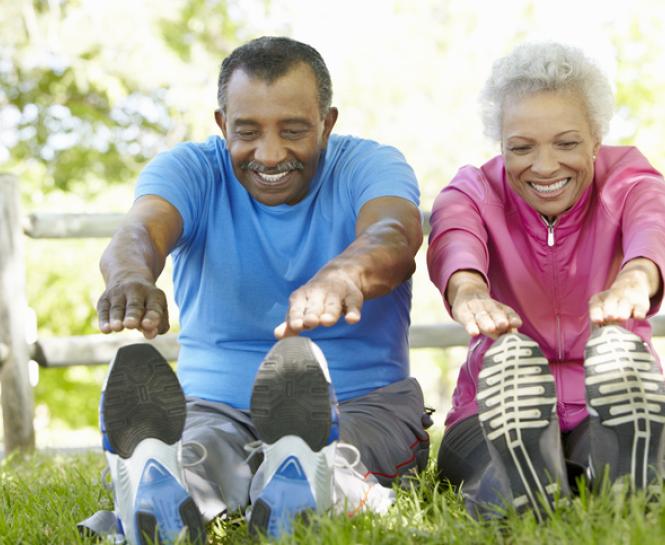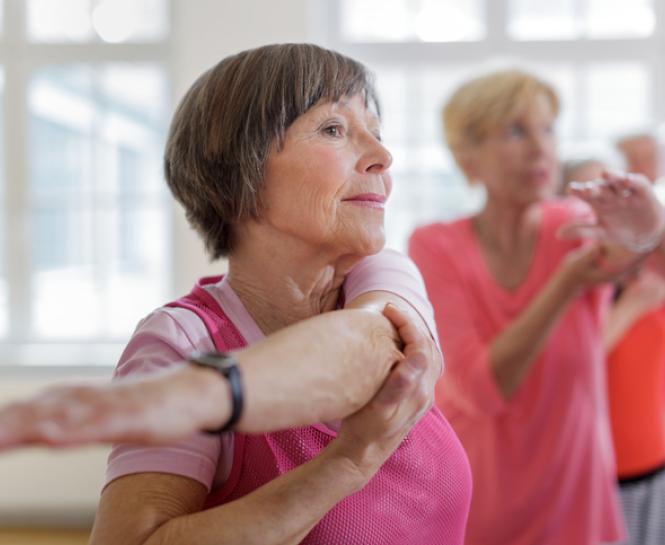Regular exercise has many health benefits such as proper weight management and reducing the risk of cardiovascular disease, diabetes, depression and even helping you sleep better. But the greatest challenge for many is getting started and doing so safely.
Catholic Health Physician Partners Primary Care Physician Mark Guelzow, MD, answers frequently asked questions about the best way to begin an exercise program that over time will make you feel better and have a positive impact on your health.
What is the best way to safely start an exercise program?
Set attainable goals and keep track of your progress. It’s important to remember that everyone will progress differently.
- Start slow and gauge your limits.
- Set a new goal each week and work to gradually increase to about 150 minutes of aerobic exercise weekly.
- Start walking 10 minutes per day, three days per week with a gradual increase in the amount of time and days walked each week.
- Stretch before any activity.
Should I visit a primary care physician (PCP) before starting an exercise program?
Yes, visiting your PCP to discuss your exercise goals is a great idea. Especially if you have not had a recent physical exam. Your doctor will be able to access factors including:
- Age
- Preexisting medical conditions like diabetes and heart disease
- Risk for falls
Together, you can then set goals that can be achieved safely.
Are there warning signs that I may be doing too much too quickly?
Chest pain and tightness or shortness of breath are signs to immediately stop exercising and get in touch with your doctor. Other signs may include:
- Extreme muscle fatigue
- Joint swelling
- Severe soreness
Be intentional and consistent. But also know your limits.
Do you recommend certain exercises?
The recommendations for heart health and maintaining a healthy weight are moderate-intensity exercise and resistance training. The number of days per week that you choose to exercise will vary based on your schedule, abilities and preferences. But keep in mind that the key to results is consistency and committing to some form of exercise on a regular basis.
Moderate-intensity exercise
Exercises include:
- Brisk walking
- Riding a bike on level ground (or a stationary bike)
- Pushing a lawnmower
- Raking
- Heavy cleaning and water aerobics
Resistance training
This form of exercise aims to increase muscular strength and endurance. Benefits of resistance training include:
- Increased bone density
- Reduced risk of osteoporosis
- Increased muscle strength that reduces the risk of joint injuries
Types of resistance training include:
- Lifting weights
- Using resistance bands
- Heavy gardening (digging, shoveling)
- Using your body weight for resistance by doing sit-ups or push-ups
Remember, contact your primary care physician before beginning a new exercise program. You will benefit greatly from a program that is doctor-approved, safe and meets your health needs and goals.
Call 866-MY-LI-DOC (866-695-4362) to find a Catholic Health physician near you.


